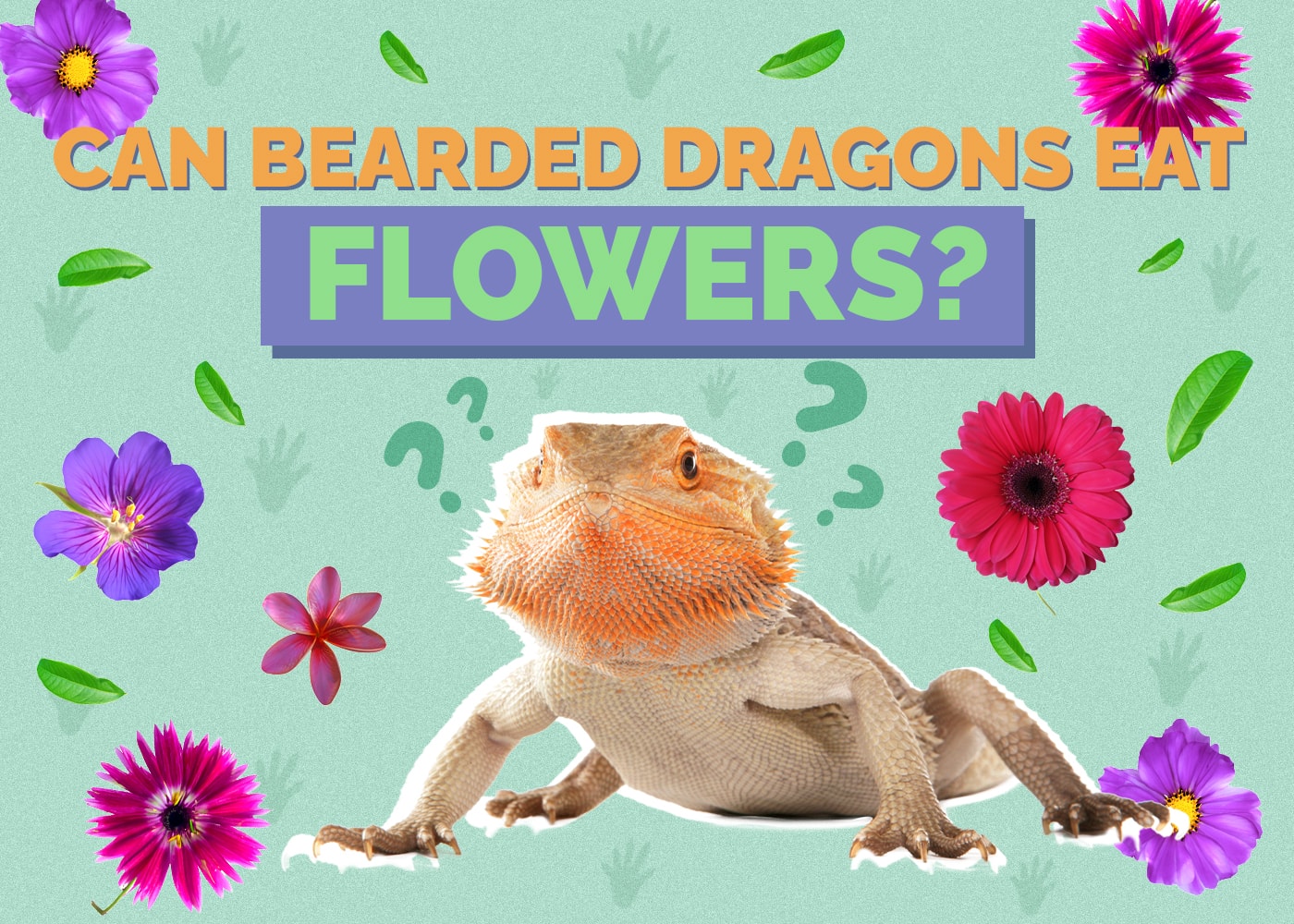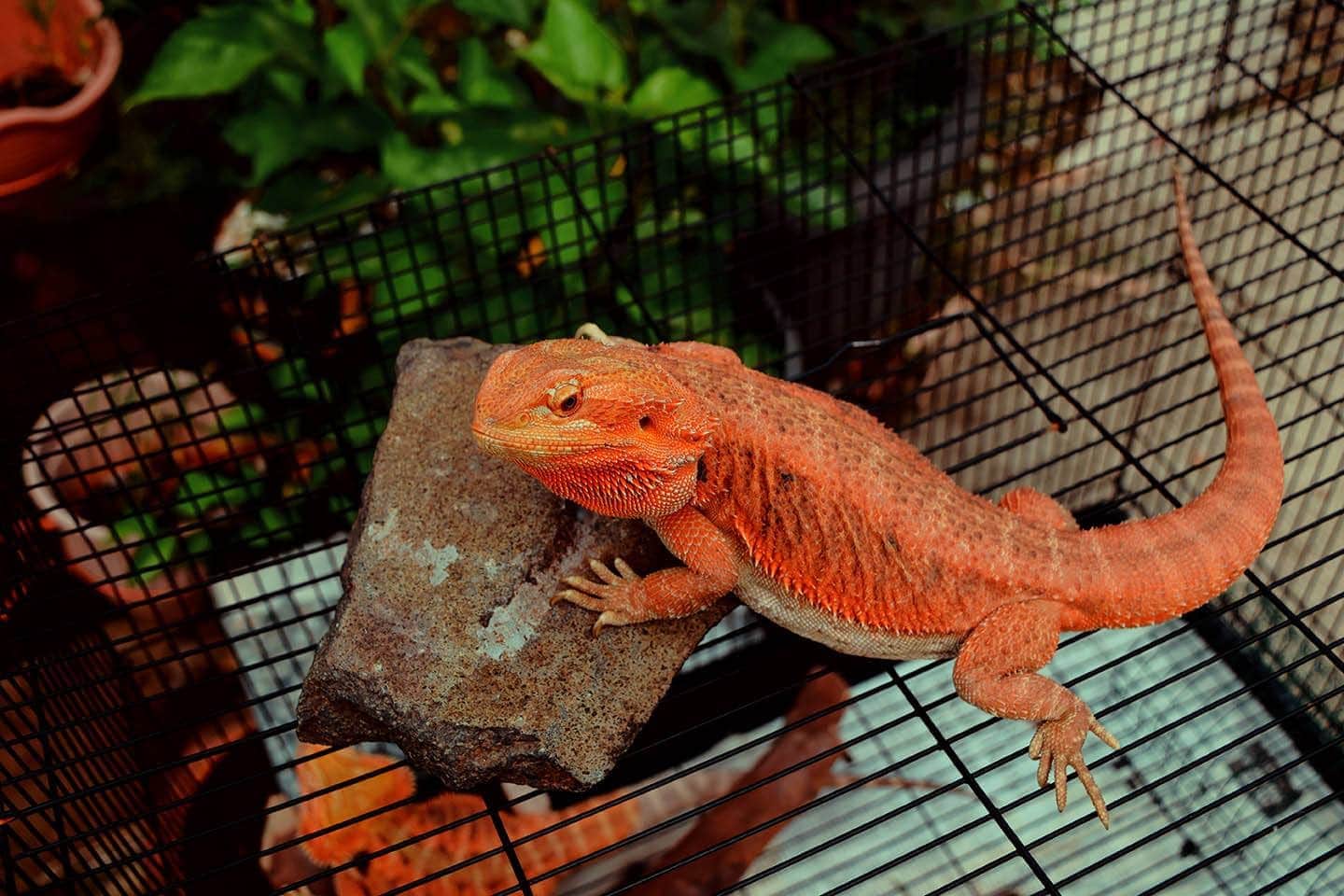Can Bearded Dragons Eat Kale? Vet-Reviewed Facts & Tips

Updated on

Kale is safe and nutritious for bearded dragons, though it should be fed in moderation with a variety of other vegetables.
Here’s everything you need to know about feeding kale to your bearded dragon as part of a complete and balanced diet.

Is Kale Safe and Healthy for Bearded Dragons?
As a part of a varied and balanced diet, kale is safe and healthy for your bearded dragon. It’s a nutrient-dense leafy green that has loads of vitamins and minerals, including:
- Vitamins A, C, and K
- Potassium
- Manganese
- Magnesium
- Calcium
Kale is one of the few vegetables with a much higher calcium concentration than phosphorus, allowing bearded dragons to absorb it. Improper diets that are too high in phosphorus or too low in calcium and/or inadequate vitamin D3 can lead to health issues like metabolic bone disease (MBD), which compromises the dragon’s bone density. Eventually, this serious condition can progress to seizures, inappetence, muscle twitching, and severe lethargy.
Kale is also low in oxalates, unlike some other leafy greens. A diet too high in oxalates can cause issues with calcium absorption, leaving your beardie susceptible to MBD and other problems.
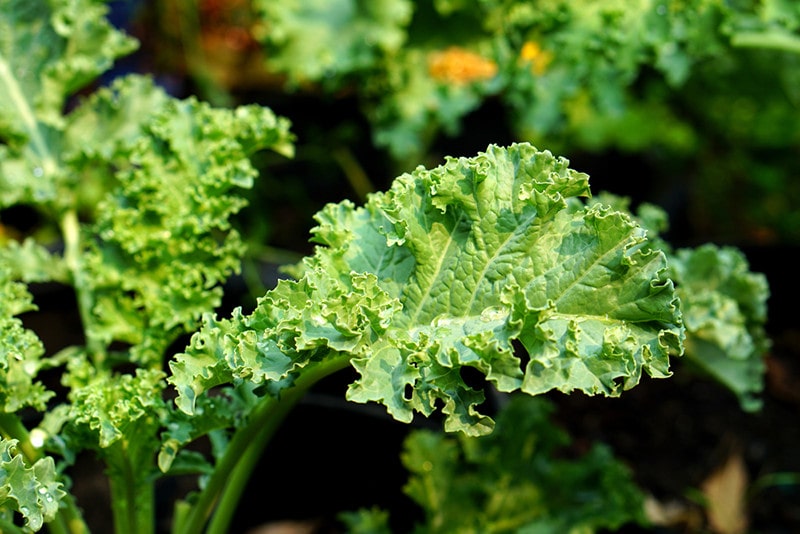
How to Feed Kale and Precautions
All vegetables, including kale, should be fed raw (or lightly cooked) to retain nutrients. Make sure you wash your fruits and vegetables to clean off any pesticides, insecticides, or other contaminants that can hurt your dragon. If you do cook it, stick to boiling or steaming instead of frying or sauteing. Avoid using any seasoning on the fruits and vegetables for your dragon.
When you feed kale and other vegetables and fruits, be sure to chop everything up into small pieces that are easy for your dragon to eat and to ensure it gets a mix of different foods. Otherwise, your dragon may develop a preference for one food that can lead to an imbalanced diet.
Kale, along with mustard greens and cabbage, contains goitrogens that suppress the thyroid glance by interfering with iodine uptake. Feeding these veggies in excess can lead to hypothyroidism in your bearded dragon and a host of related symptoms.
Kale is also loaded with vitamin A. Bearded dragons need a certain amount of vitamin A in their diet as it is important for maintaining normal epithelial tissue and is vital for their immune function, vision, growth and reproduction. However, bearded dragons can also have problems if they have vitamin A in excess, causing vitamin A toxicity ( hypervitaminosis A). The levels may become too high if you feed too much kale as well as supplementing vitamin A. Speak to your exotics vet for advice on a balanced diet and supplements for your beardie.
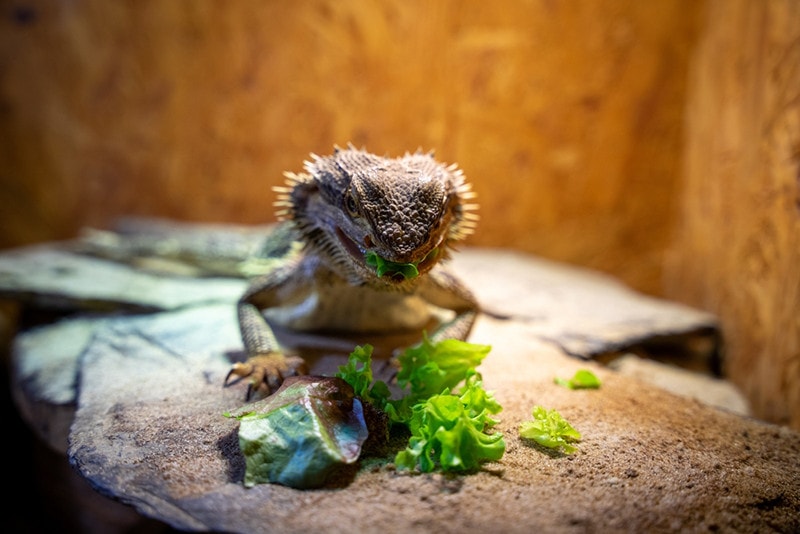
Typical Bearded Dragon Diet
In the wild, bearded dragons eat both animal-based and plant-based foods. Young dragons tend to eat more animal protein, while adults eat more vegetarian diets.
80-90% of the plant material in a bearded dragon’s diet should be composed of leafy green vegetables and flowers. Only about 10% to 20% should be fruit.
For leafy green vegetables, it’s best to use:
- Collard greens
- Beet greens
- Mustard greens
- Turnip greens
- Alfalfa
- Bok choy
- Swiss chard
- Kohlrabi
- Watercress
- Clover
- Green beans
- Cilantro
- Escarole
- Dandelion
- Kale
Leafy greens like Swiss chard, spinach, and beet greens should be fed sparingly. These vegetables contain oxalates that can bind calcium and other trace minerals, preventing absorption.
A smaller portion of the diet can include:
- Cactus
- Squash
- Okra
- Sprouts
- Cucumber
- Cooked sweet potato
- Asparagus
- Carrots
- Peas
- Corn
Fruit that’s safe for bearded dragons includes
- Figs
- Melon
- Kiwis
- Guava
- Apricot
- Dates
- Raspberries
- Strawberries
- Apples
- Pears
- Starfruit
- Grapes
- Peaches
- Mangos
- Tomatoes
Though safe, these fruits should be fed sparingly to avoid an imbalance in your beardie’s diet.
For animal-based protein, bearded dragons can have calcium-dusted crickets, mealworms, and Dubia roaches. Hornworms and silkworms are good options on occasion. Waxworms and superworms should be fed sparingly, as they are high in fat.
All the insects provided should be feeder-quality insects sourced from reptile breeders, pet stores, or bait stores, never from your own home or garden. Wild insects may have diseases or contamination from fertilizers and insecticides that can be toxic for our beardie.
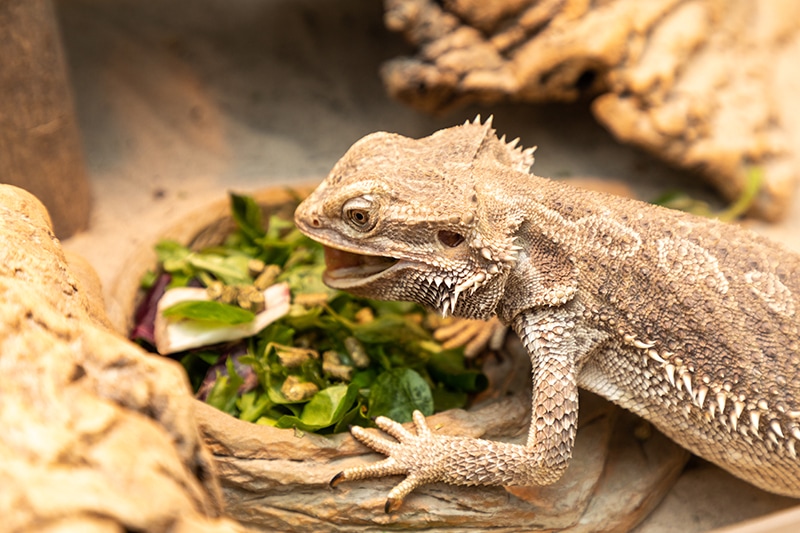

Conclusion
Kale is one of many vegetables that are safe and healthy for your bearded dragon to eat. But like everything else, kale should be fed in moderation as part of a varied diet of appropriate foods. An unbalanced diet with too much kale may contribute to the development of health problems like hypothyroidism or vitamin A toxicity.
See Also:
- Can Bearded Dragons Eat Green Beans? Vet-Approved Facts & FAQ
- Can Bearded Dragons Eat Mushrooms? Vet-Approved Facts & FAQ
Featured Image Credit: Piqsels

